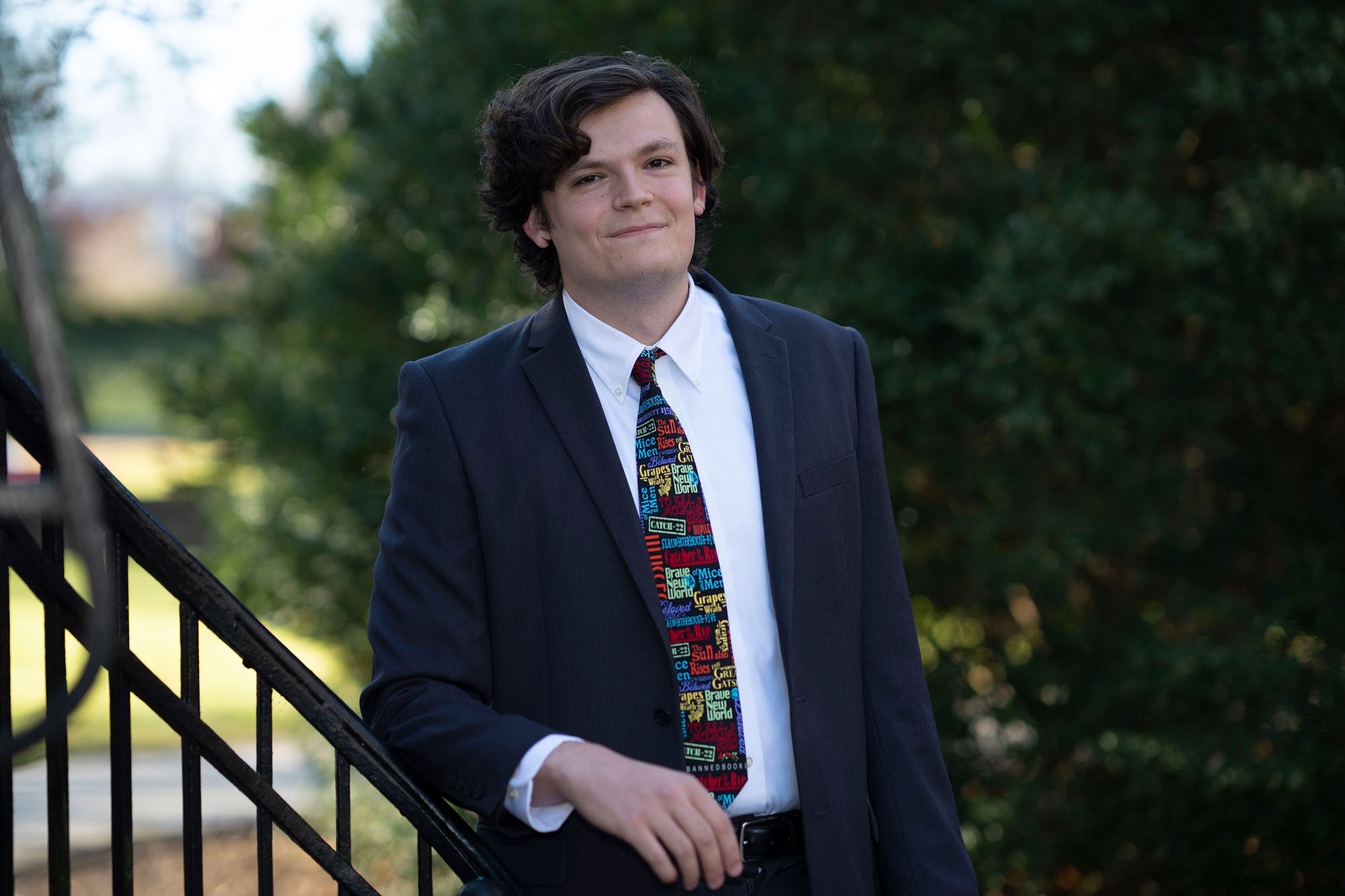Yahn, from Roswell, Georgia, will create his own master’s program at the University College Dublin, pursuing artificial intelligence techniques based on the human brain’s neural networks as an alternative to popular architectures.
“All these companies are buying tens of thousands of computers and spending all this time training these ridiculously large models,” Yahn said. “Really, really big models get some interesting results, but there are negative downsides where we don’t really understand how those models arrived at their conclusions and it is super expensive to make them.”
Yahn, a Jefferson Scholar, hopes to be part of a smaller research community modeling artificial intelligence on human neural pathways.
“We already see intelligence in our own cognition,” Yahn said. “If we can make our systems more like the way we think, then they will be much easier to train, more explainable, more transparent and generally more understandable than these contemporary behemoths.”
Yahn is optimistic about artificial intelligence’s role in decision making.
“People should consult artificial intelligence in situations with complex data, but ultimately humans should make the decisions,” Yahn said. “Algorithms need to be able to explain why they got the results they did so you can understand what is going on there.”
For the past two years, Yahn has been applying artificial intelligence and machine learning in his internship at NASA’s Goddard Space Flight Center. He is using algorithms to sort data from the Cassini-Huygens probe’s data-collecting mission to Saturn and its moons, including Titan, the largest.
“Titan is unique among the solar system moons because it has this dense atmosphere and shows similar characteristics to Earth’s atmosphere,” Yahn said, “Just like Earth, it has a water cycle with precipitation and evaporation, only with methane.”
Yahn said it would take years for people to sort the hundreds of thousands of images of clouds in Titan’s atmosphere.
“We were using more modern computer vision, deep-learning techniques to automatically analyze these things,” Yahn said. “We had algorithms that could find where the clouds are, calculate their areas, calculate how they changed over time and make these broad inferences about their structure.”
Yahn received first place in a national Innovative Discovery Science Platform Adversarial AI/ML Competition, using blockchain technology to prevent deepfakes and misinformation. He wrote, designed and delivered an undergraduate course on the history of game-playing AI and its implications for the future.
Chosen as a National Science Foundation Research Experience for Undergraduates Fellow in the Humans and Autonomy Lab at Duke University, Yahn developed a classification and regression tree for predicting injuries on U.S. Navy aircraft carriers.
“I get inspired by things other people find nerdy,” Yahn said, “AI is the product of science fiction, but is now very real. Itis ultimately just statistics, but that is something I think is quite cool. It can be beautiful, but also really dangerous, and that’s exactly the kind of problem I can get fixated on. Now I’m working on solving it.











